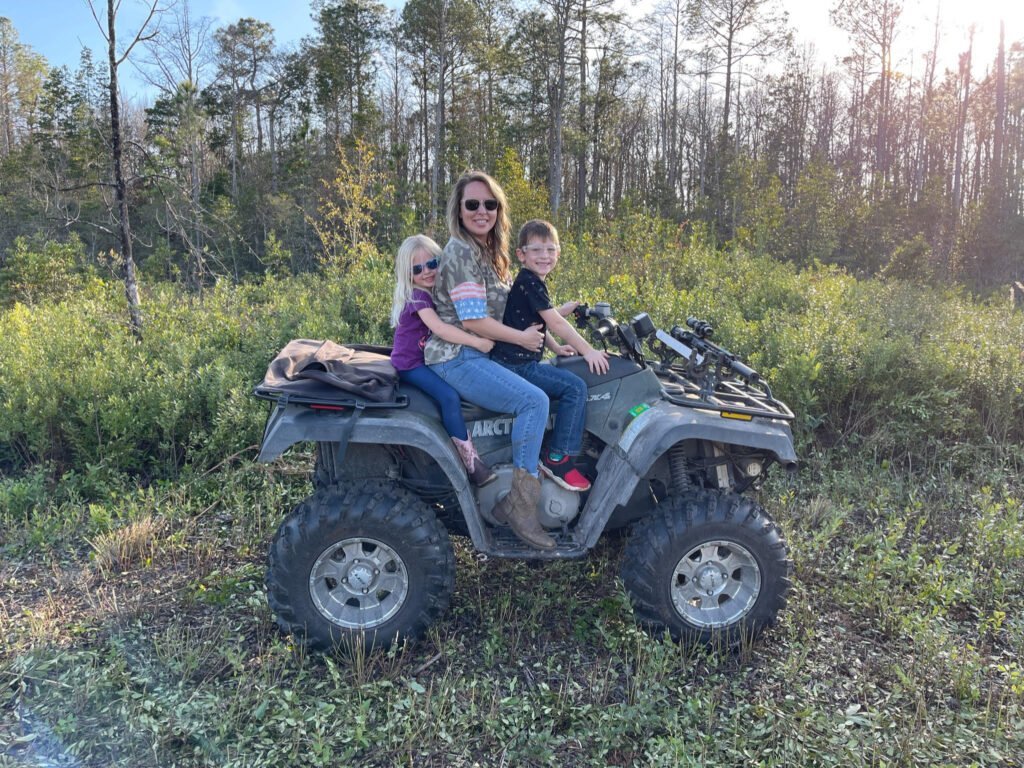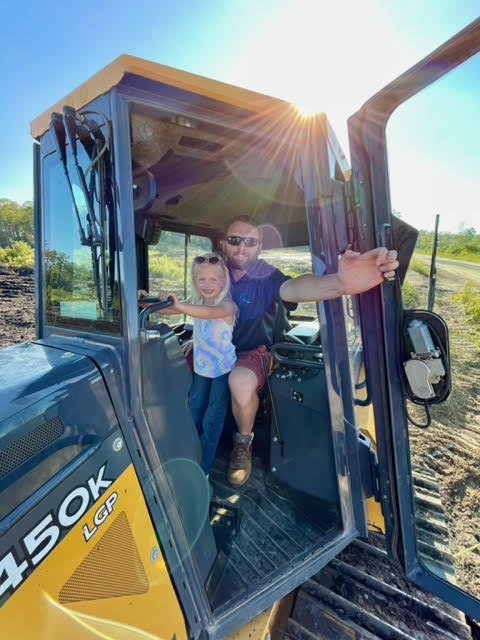With hundreds of closings under my belt and also purchasing my own piece of land, I have learned a few things when it comes to getting important information. It all comes down to asking the right questions and setting clear expectations right from the start with your Realtor.
Finding the property of your dreams takes time and careful consideration. The DETAILS matter!

To me, there are 20 really important questions to ask before purchasing land but to keep this blog post from getting out of hand I want to narrow it down to 5 questions I think you should consider above all the others.
The Top 5 Questions to Ask Before Purchasing Land
1. Are the corners of the property marked already?
Believe it or not well-defined boundaries provide legal clarity and prevent potential disputes with neighbors or third parties over property lines. This helps in safeguarding your investment and ensuring your ownership rights are protected. Additionally, having clearly marked boundaries allows for effective land use planning and development, ensuring that you can make the most out of your property without encroaching on adjacent parcels or violating local zoning regulations. You don’t want your pig pen or cow pasture on someone else’s property. Overall, clearly defined boundaries are a fundamental aspect of responsible property ownership, offering peace of mind and legal security for both current and future landowners.
2. Who owns the road & maintains it
Understanding the ownership and maintenance responsibilities of a road, whether it is owned by the county or privately held, holds significant importance . Knowing the owner clarifies the chain of responsibility for upkeep and repairs. If the road is under county ownership, it typically falls within the purview of public infrastructure, ensuring regular maintenance, safety, and accessibility for all residents and travelers. On the other hand, if it is privately owned, the maintenance rests on the owner or a designated entity or group of individuals. This can influence the quality and condition of the road, impacting convenience and safety for those who use it. Ownership rights can be pivotal in legal matters, such as easements or rights of way, and can play a crucial role in property values and development potential. In essence, discerning the ownership and maintenance status of a road is fundamental for ensuring its continued functionality and, in turn, the well-being and convenience of those who rely upon it. You have every right to know if you are responsible to maintaining that privately owned road!
3. Are there utilities already on the property?
Having utilities already available on a vacant piece of land is the cherry on top when you go to purchase. Access to utilities such as water, electricity, and sewage systems eliminates the need for costly and time-consuming installations. This means that construction and occupancy can commence sooner, saving both time and money. Additionally, it enhances the overall livability and functionality of the property. The land is more appealing and valuable to potential buyers or occupants. Furthermore, it can streamline the permitting process, as local authorities often consider existing utilities as a positive factor when evaluating development proposals. In sum, having utilities readily available on a vacant piece of land not only facilitates ease of construction but also enhances the marketability and value of the property. Remember this might mean that you pay extra for the convenience of it already being done.
4. Does the property have any easements?
It is imperative to understand who is allowed and not allowed on certain parts of the property. Really, you should be able to view a current survey on the property to find this out but just in case the easements are not on there, here are a few I think you need to be made aware of:
- Utility Easements: These allow utility companies the legal right to access the property for maintenance, repair, or installation of utility lines or equipment. This ensures that essential services like water, gas, electricity, and telecommunications can be provided to the property.
- Access Easements: These grant someone the right to enter or pass through a property for a specific purpose, such as reaching a neighboring property, a public road, or a recreational area. This could be in the form of a driveway easement or even a pedestrian path.
- Conservation Easements: These are typically put in place to protect natural resources, wildlife habitats, or scenic views. They limit certain types of development or land use on the property to preserve its environmental integrity.
- Private Easements: These are typically negotiated between private parties and can cover a wide range of uses. For example, a landowner might grant their neighbor the right to use a portion of their land for specific purposes like fishing, hunting, or recreational activities.
- Drainage Easements: These allow for the flow of water across a property for drainage purposes. They ensure that stormwater can be properly managed, preventing flooding or erosion issues.
Understanding the types of easements that apply to a residential property is crucial for both current and future property owners, as they can impact how the land can be used and developed.
5. Are there any zoning restrictions on how many dwellings can be on the land?
Zoning restrictions play a pivotal role in determining the allowable number of dwellings on a piece of property. These regulations are established by local government authorities to manage land use and development within specific areas. For instance, in residential zones, there are often specific zoning codes that stipulate the type and density of housing permitted. This can range from single-family homes to multi-family units like duplexes, townhouses, or apartment complexes. Zoning ordinances also consider factors such as lot size, setbacks, and building height, all of which influence the potential number of dwellings on a given parcel. At the end of the day, if you anticipate wanting to build a family compound, make sure that the county will allow you to do so all on one property.

If you loved these 5 questions and want to know my other 15 most crucial questions to ask, Check out my Youtube channel where I like to go in depth to help you gather all the crucial information needed prior to ever purchasing!
Having clear answers to these 5 questions before purchasing land is a cornerstone of informed decision-making. Understanding property boundaries, utilities, easements, and zoning restrictions provides a solid foundation for a successful and harmonious land ownership experience. Armed with this knowledge, you can embark on your land ownership journey with confidence, knowing that you’re making a well-informed and thoughtful investment. So, take the time to gather this essential information, and may your future property bring your family joy and fulfillment for years to come!



